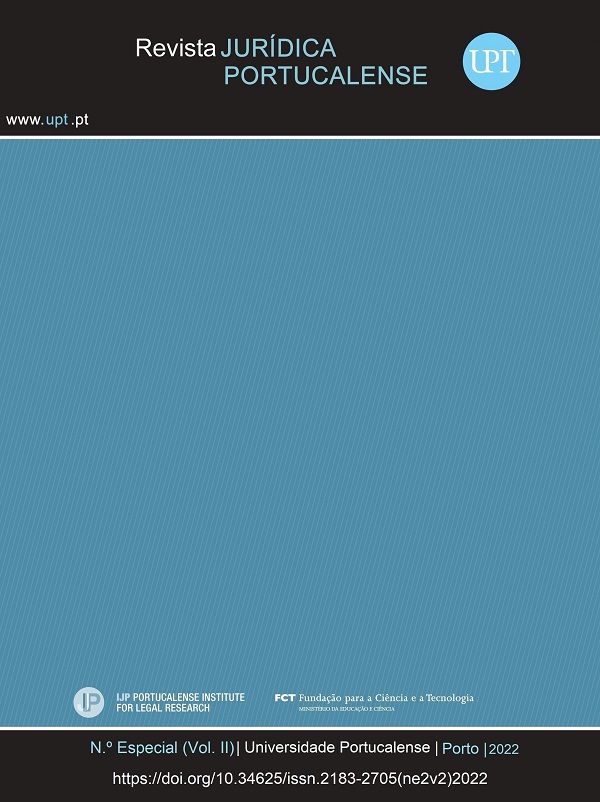Social implications of digital justice
Keywords:
Administration of Justice; Digital process; Pandemic; Human rights.Abstract
This study argues the social implications of digital justice. The pandemic crisis has changed the way in which justice is administered. It became urgent to find, through telematic means, solutions for the civil process, which would make it more agile in the exercise of its innate social and distributive function of justice and the common good.
The essential objectives consisted in highlighting the corrective measures indispensable to the administration of justice, at the same time, determining whether the extraordinary circumstances caused by the pandemic, which led to the application of the digital method, should lead to a new era in civil procedure and constitute an opportunity for a new beginning, making it more modern and functional, resistant to any form of pressure or exceptional moment, thus assuming the digital measures adopted a definitive character.
The methodology used was based on the study of the digital method, its use in courts; the evaluation and selection of judges and of lawyers, both of whom should have digital knowledge, in addition to a perfect knowledge of the law. We resorted to the analysis of the legal diplomas that frame and legitimate the application of digital justice, of the new technological means and platforms, going through the artificial intelligence systems and the problematic of the robotic judicial decision.
Although there is still a long way to go, the digitalisation of justice has contributed to its modernisation and greater agility in the various procedural stages, largely overcoming a system that was slow and obsolete. The introduction of artificial intelligence, through software that serves as search engines and databases capable of providing legal advice (machine learning), has proved to be of great value although it raises questions of security and origin of data for which no answers have yet been found.
References
ASCENSÃO, José de Oliveira, Estudos sobre Direito da Internet e da Sociedade da Informação.Coimbra: Almedina. 2001.
BITTAR, EDUARDO CARLOS BIANCA. Semiótica, Direito & Arte: entre teoria da justiça e teoria do direito. 1 ed. São Paulo: Almedina, 2020.
CAPRA, FRITJOF. A revolução eco jurídico o direito sistêmico em sintonia com a natureza e a comunidade. Editora Cultura- São Paulo. 2015.
COPPOLA I., DE PROCESSO, NAPOLI, Editoriale Scientifica, 2017.
COPPOLA I., Principi ed argomenti di scrittura giuridica dal negozio agli atti normativi e processuali (in Collana UNIVERSITA'-ESI), Edizioni Scientifiche Italiane, Napoli, 2016.
COPPOLA I., Capitale umano o decisioni robotiche. Un nuovo processo in Italia, in Collana Ricerche Giuridiche n. 156, Napoli, 2019.
COPPOLA I., Il processo civile telematico, Salerno, 2014.
KAFKA F., Il processo, Milano 1978.
MANDRIOLI C., CARRATTA A., Diritto Processuale civile, I vol. Torino, 2019.
QUERZOLA L., Contributo allo studio degli atti processuali tra forme e linguaggio giuridico, Torino, 2018.
REBELO, FERNANDA. “O Comércio Eletrônico e os Novos Desafios da era digital á Luz da Diretiva Europeia 2000/31. disponível em http://revistas.rcaap.pt/juridica
RODOTA' S., Il diritto di avere diritti, Roma-Bari, 2012.
SATTA S., Il mistero del processo, Milano, 1994.
SUSSKIND S., Tomorrow's Lawyers, Oxford, II ed., 2017.
Downloads
Published
How to Cite
Issue
Section
License
Authors who published in the journal agree to the following terms:
- The Authors grant the Journal the right of first publication, and other non-exclusive publishing rights, licensed under the Creative Commons Attribution License which allows the sharing of work with recognition of its initial publication in this journal.
- Authors are able to take on additional contracts separately, non-exclusive distribution of the version of the paper published in this journal (ex .: publish in an institutional repository or as a chapter in a book), with an acknowledgement of its initial publication in this journal.
- Authors are permitted and encouraged to post and distribute their work online (eg .: in institutional repositories or on their website) at any point before or during the submission process, as it can lead to productive exchanges, as well as increase the impact and the citation of published work (See The Effect of Open Access).
RJP does not apply submission, publication or any other fees of any nature. Its articles are open access, with the goal of disseminating scientific knowledge and the debate of legal topics in the area of Legal Sciences.






